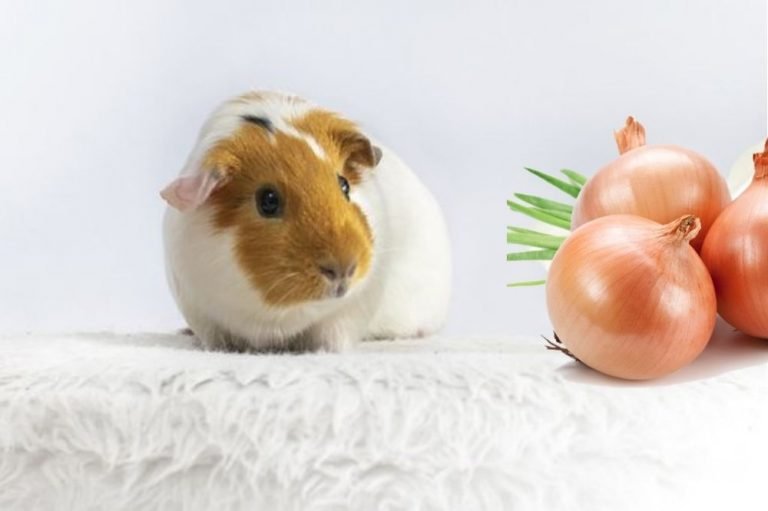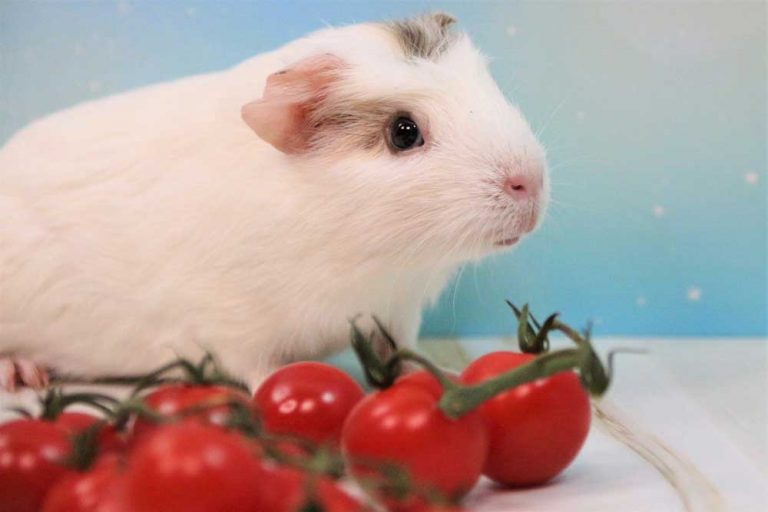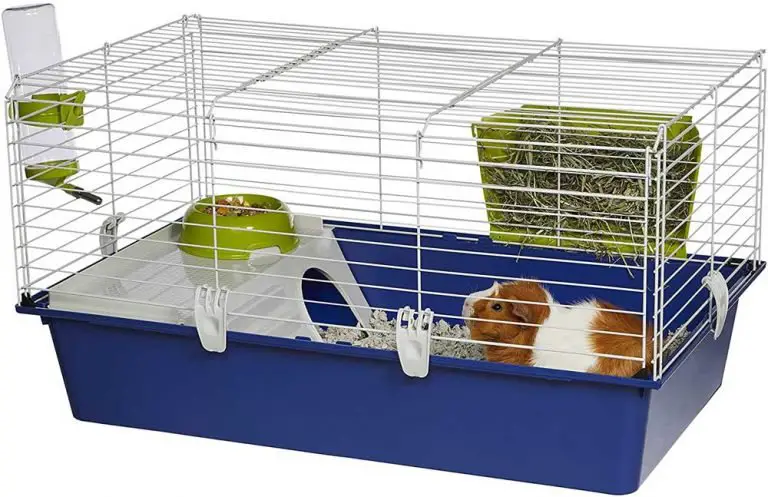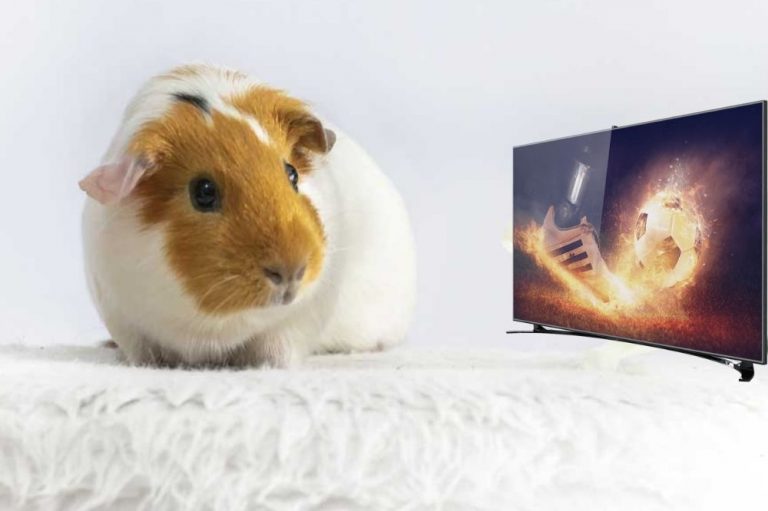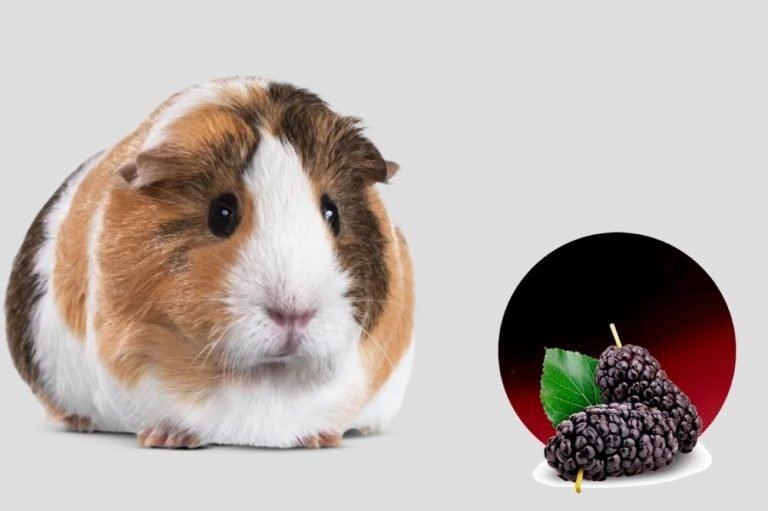Why is My Guinea Pig Not Moving? (Reasons and More)
Locomotion is a key and basic feature for animals and human beings. Seeing your guinea pig, not in motion might be a cause of worry for you as a pet owner. Should this be the case or is there more to it?
Having more questions about your pet and its inability to move? This article got you covered; have all the answers you need by reading right through it.
Why is My Guinea Pig Not Moving?
Your guinea pig’s inability to move is caused by a series of reasons. Some are temporary and can easily be fixed by you while others require further medical assistance.
These reasons are either health related or physiological conditions and they include;
- When your guinea pig is injured.
- An anxious pet.
- Parasite infestation in the guinea pig.
- Fear or stress in your cavy.
- A sick guinea pig.
- Malnutrition in your pet.
- Danger instincts in the guinea pig.
- Other health problems e.g. dental problems
Malnutrition in Guinea Pigs
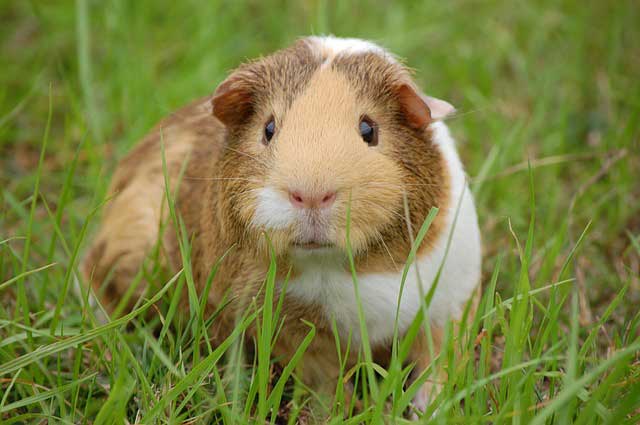
A balanced diet is essential for a healthy guinea pig. When your pet is not supplied with the right nutrients in the right amount, it becomes weak and develops other health related issues.
A guinea pig lacking enough carbohydrates in the body will not have the energy to move around. Moreover, calcium and vitamin D are vital in good bone health.
Although excess calcium causes kidney failure, when in little amount it leads to poor development of your pet’s bones. Learn the right balance and top it up with vitamin D. Weak bones will lead to your cavy developing difficulties in movement.
Flight-Fight and Freeze Instincts in Cavies
When animals are in danger, they develop the urge to fight, run or freeze. These instincts allow them to protect themselves from the perceived danger through undergoing additional hormonal and physiological changes.
Guinea pigs are prey animals and will regularly use their prey instincts to protect themselves from danger. Therefore, your pet may freeze when it feels threatened.
By doing this, it targets not moving at all so it remains invisible. This may be caused by presence of predators, re-arrangement of their cages or house or a change in environment.
Parasite Infestation in Guinea Pigs
Not only do external parasites cause diseases in your pet but also they have other underlying adverse effects on it. Parasites such as lice and mice may cause your guinea pig not to move.
Lice and mice on your guinea pig will cause frequent scratching of the skin, intense itching and even skin inflammation. This causes skin irritation on your pet making it uncomfortable therefore reduced movement.
Movement Inability in Overweight Cavies
When your guinea pig has excess weight, it may develop sores on its feet. Pain from these sores will make it reluctant to move. In addition, when your pet cannot carry its own weight it becomes hard for it to move.
Scurvy in Guinea Pigs
Scurvy is caused by a deficiency in vitamin C and will cause your guinea pig not to move. When your pet is suffering from scurvy, it tends to hop rather than walk.
It may also develop inflames and stiff arms and legs which make it hard for it to move well. Ensure to have your pet checked for further medical diagnosis.
Other distinct scurvy signs are;
- Painful joints
- Diarrhea
- Dental issues
- A rough coat
- Bruising
- Weight loss
Anxiety in Guinea Pigs
When your guinea pig is anxious, it will freeze its movement. Other anxiety symptoms to check out for are;
- It becomes excessively irritable.
- Being more aggressive e.g. tossing its head, fidgeting or baring its teeth.
Stress and Fear in Guinea Pigs
When your pet is in fear or stressed it will show a reluctance in movement and a series of other behaviors which are.
- When in fear, it will become immobile and it can also slightly tremble. Fear in guinea pigs may be caused by loud noises, presence of foreigner etc.
- Other stress and fear signs are: frequent hiding, over-grooming, chewing on its cage and a change in feeding behavior.
Injury in Guinea Pigs
Injuries can be quite painful and when your guinea pig is experiencing this, it prefers not moving around. It will just lie, sleep around and even reduce play movements. Check the pet regularly and thoroughly as they can be good at hiding any pain being experienced.
Other Health Problems in Guinea Pigs
Health problems such as gastrointestinal and dental problems cause reduced movement in your pet. Such health issues will cause severe pain in the pet thus the reluctance to move.
Your guinea pig can also experience both locomotion and breathing problems. When this happens, check out for respiratory illness and heatstroke issues.
Movement Reluctance in New Guinea Pigs
At times, a healthy guinea pig may refuse to move. When your guinea pig is new it feels vulnerable due to the different environment and people. It will mostly hide away till it gets used to the change in environment.
How to Deal With Immobility in Guinea Pigs
- Give your guinea pig a diet with the right balance of nutrients to ensure it is healthy.
- Look out for any stress inducers in your guinea pig and deal with them.
- Create a comfortable environment for your pet where it feels safe.
- Supply the essential minerals required for good bone health in the pet.
- Check out for any injuries or sickness in the guinea pig and seek veterinary help.
- Give your new pet time to get used to you and the new environment.
- Give your pet a healthy diet, regular play and exercise to avoid obesity.
The Last Words
Immobility in guinea pigs is not normal behavior. Carefully examine your pet to determine its specific reason for lack of movement. This will help you determine how to deal with the problem at hand.
- Can Guinea Pigs Eat Lawn Grass? Find out now!
- Can Guinea Pigs Eat Wet Grass? Find out now!
- Can Guinea Pigs Eat Weeds? Explained
- Can Guinea Pigs Eat Watermelon? (Benefits & Risks)
- Can Guinea Pigs Eat Strawberries? [Feeding Guide!]

